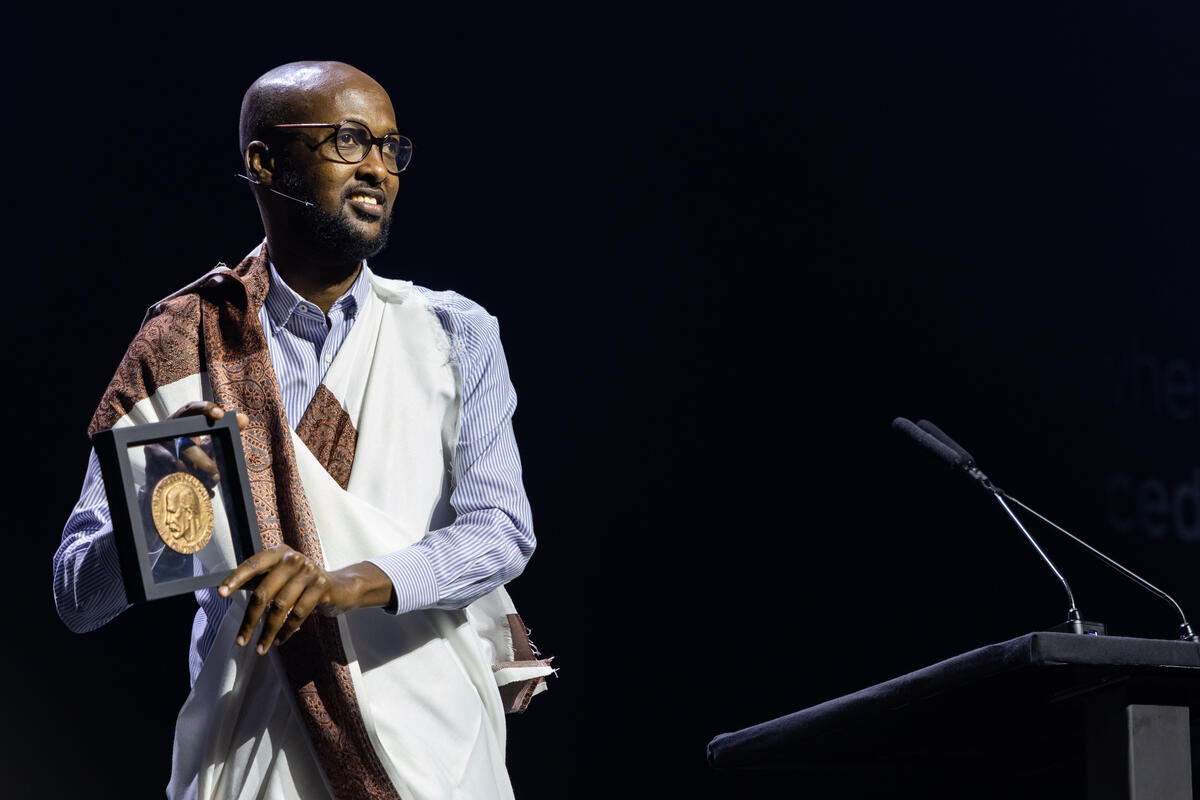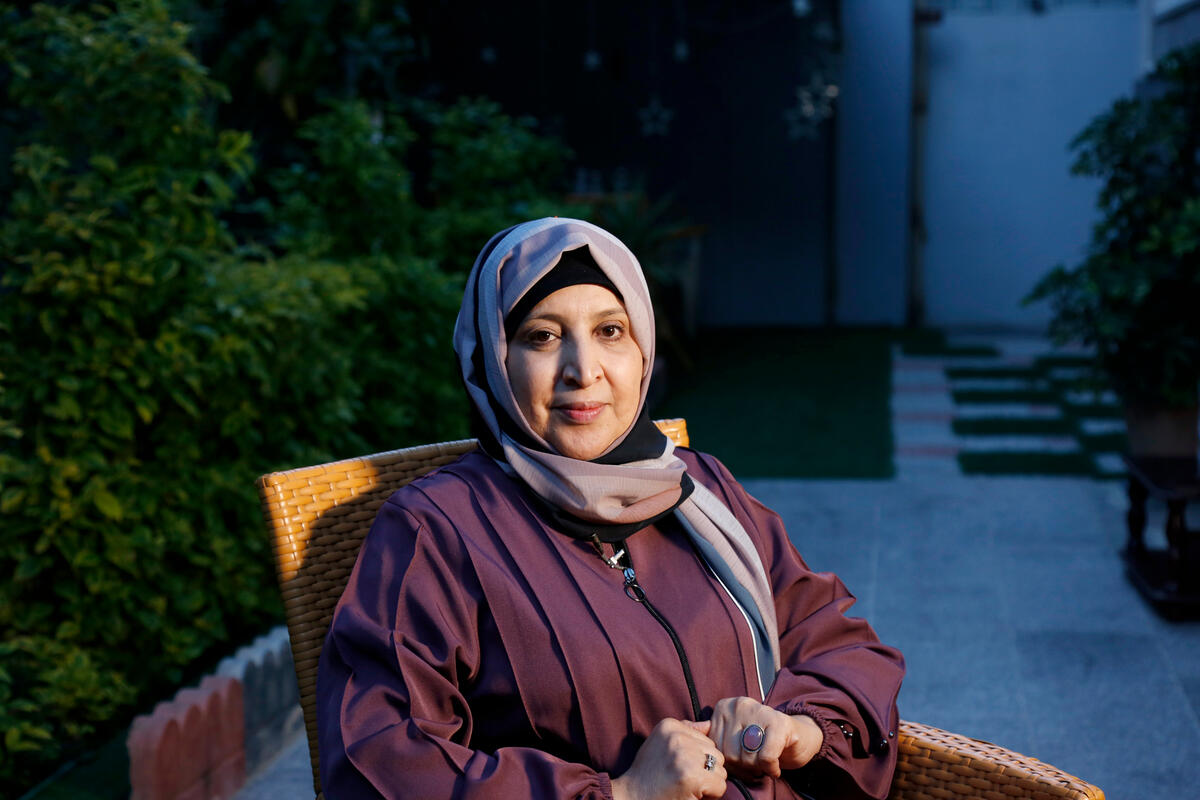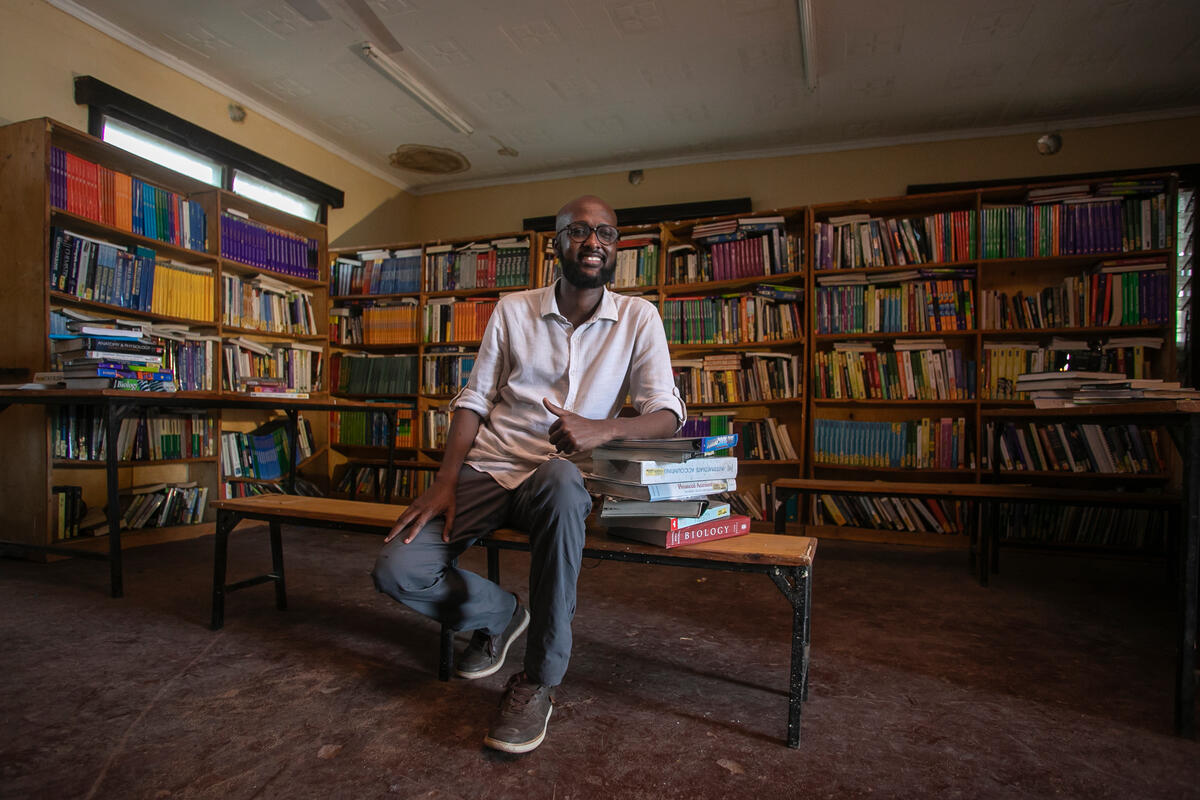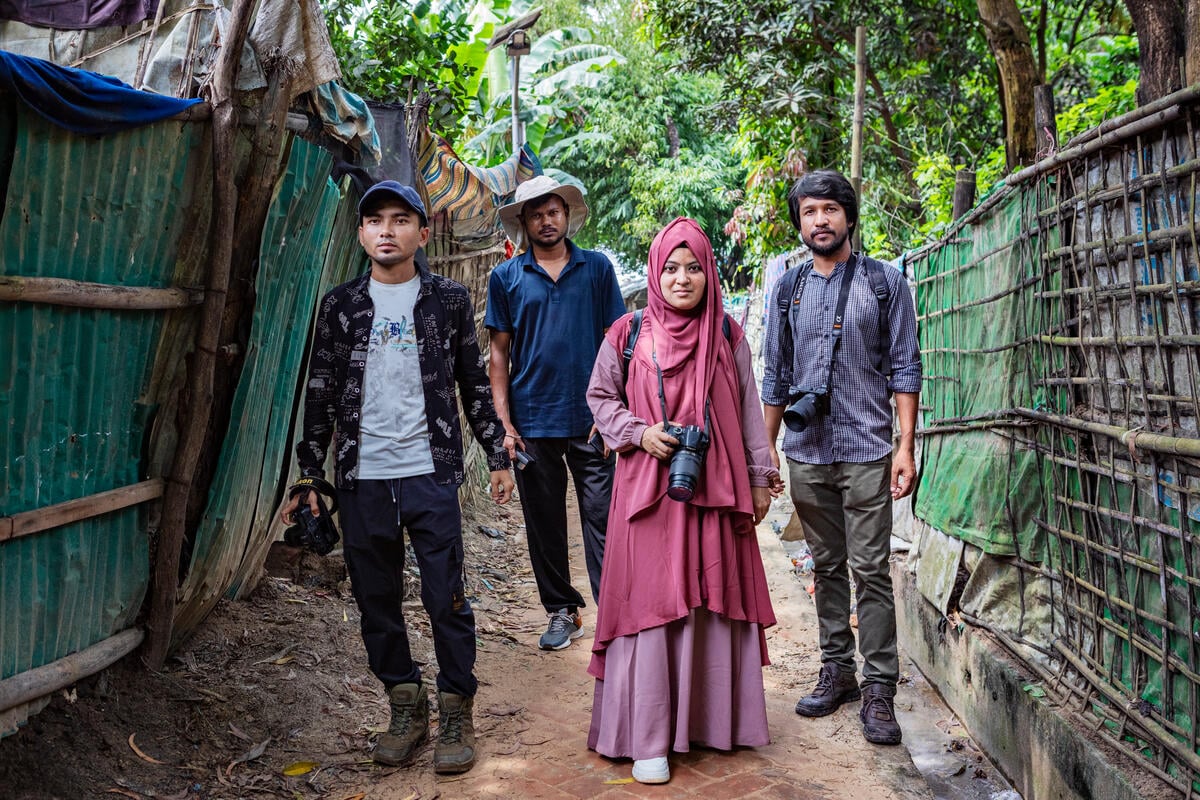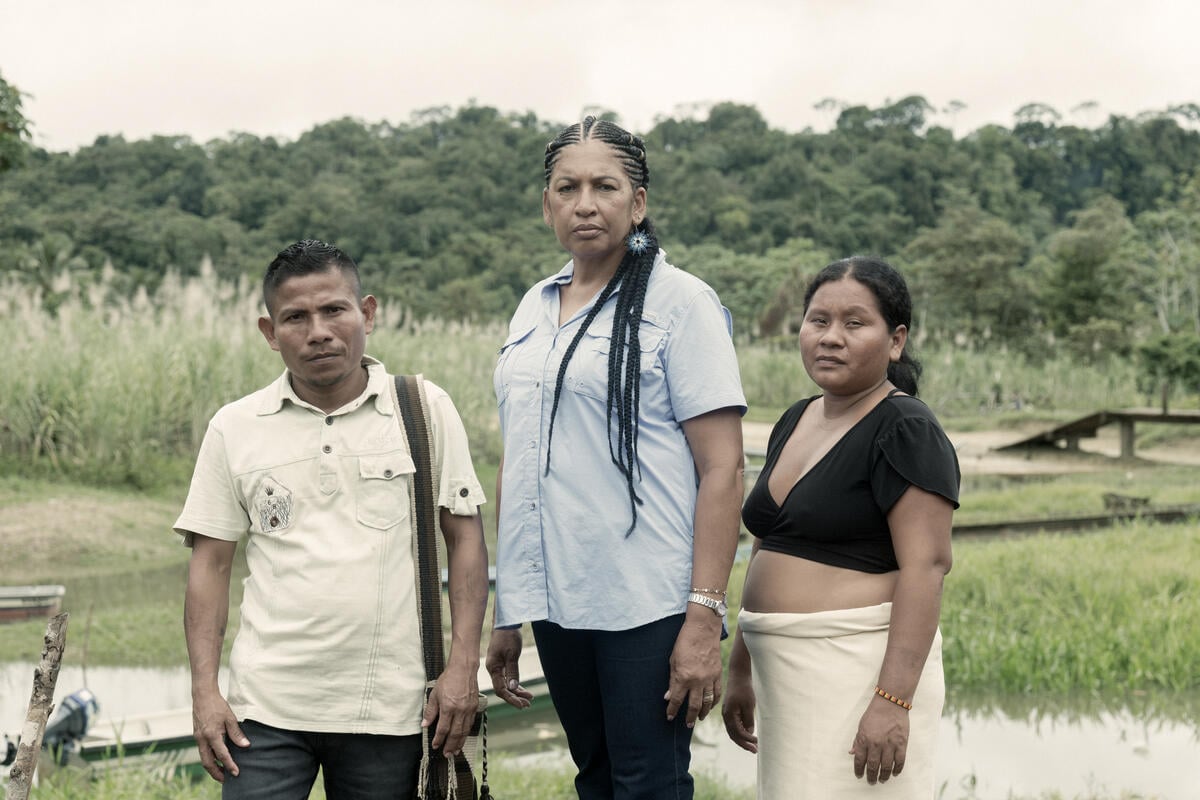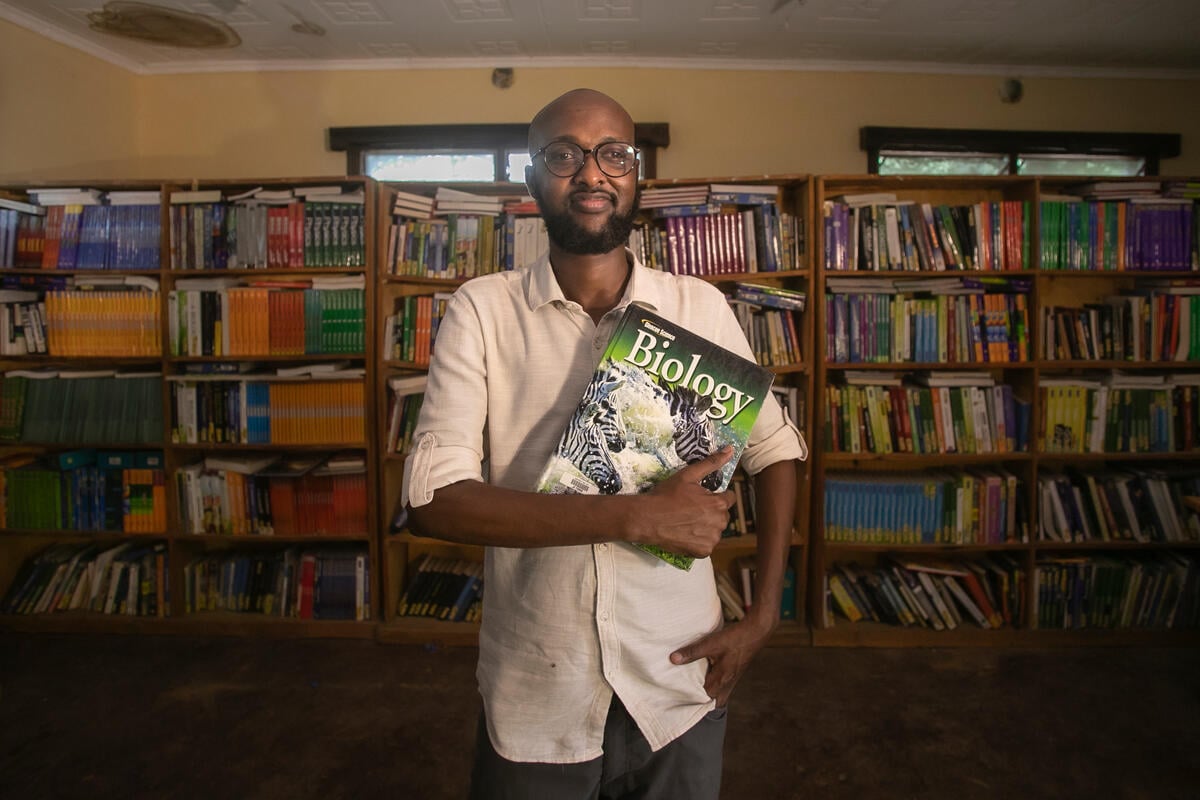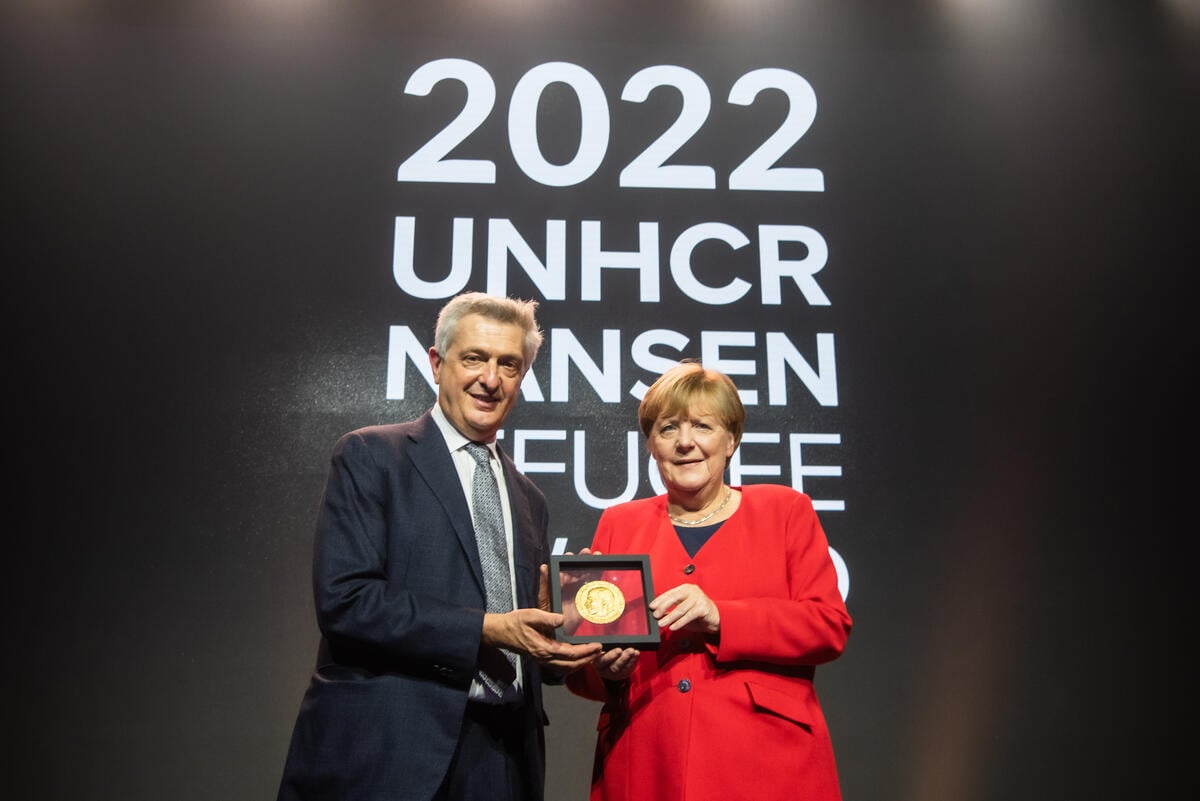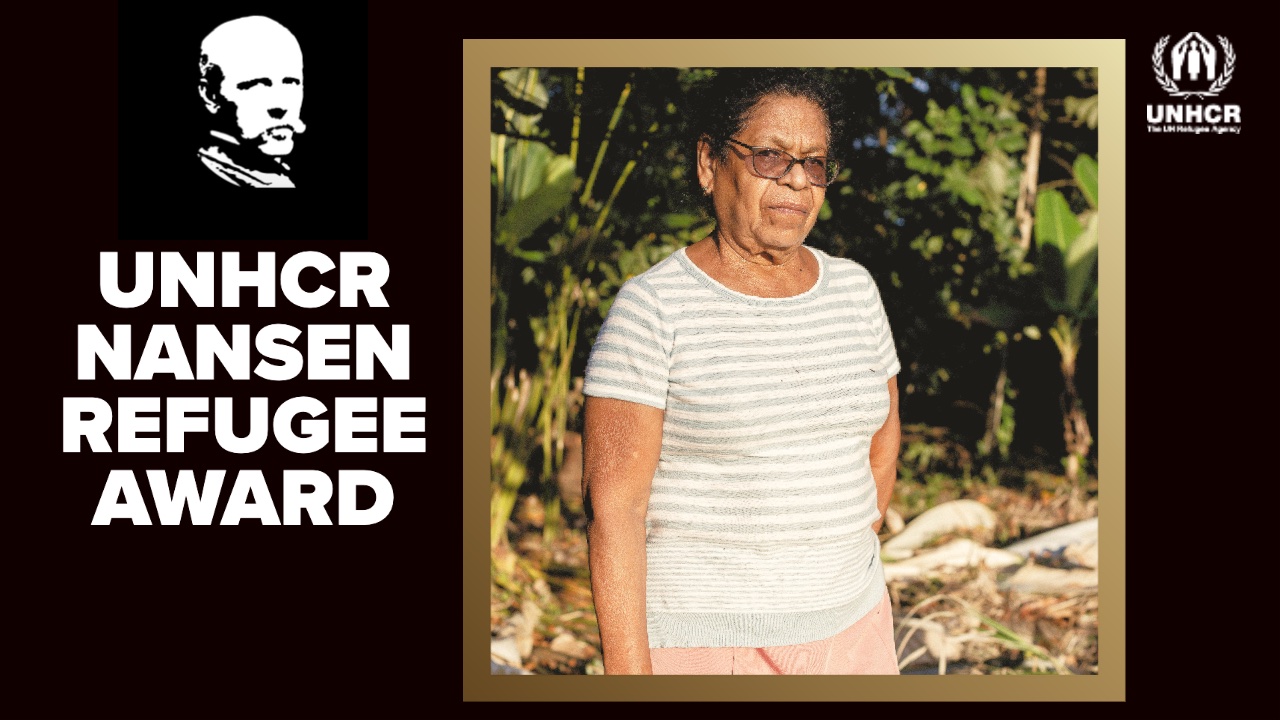Q&A: Nansen Award winners clear South Lebanon of clusterbombs
Q&A: Nansen Award winners clear South Lebanon of clusterbombs

GENEVA, October 3 (UNHCR) - Chris Clark, this year's co-winner of the prestigious Nansen Refugee Award, has spent half his life working in dangerous environments. First as a decorated soldier with the British army and more recently as the coordinator of mine clearance programmes in war-ravaged nations in Europe, Africa and the Middle East. For the past two years, as programme manager of the UN Mine Action Coordination Centre - South Lebanon (UNMACC-SL), he has been overseeing the clearance of tens of thousands of bomblets scattered over southern Lebanon by Israeli clusterbombs. Clark will be in Geneva on Monday with Lebanese mine clearer Jamal Hammoud to receive the Nansen Award during the annual meeting of UNHCR's governing Executive Committee. He recently discussed his work with UNHCR Web Editor Leo Dobbs. Excerpts from the interview:
Tell us a bit about UNMACC
The United Nations Mine Action Coordination Centre for South Lebanon, of which I'm the programme manager, is the body responsible for the management, coordination, planning and quality assurance of all landmine and clusterbomb clearance in South Lebanon. It was set up by the UN Mine Action Service, UNMAS, which is responsible for UN involvement in landmine and clusterbomb clearance throughout the world. The centre is based in Tyre in South Lebanon and set up as a joint structure, managed jointly by UN staff and the Lebanese Army, representing the government.
What has it achieved?
The first phase was spent in clearing antipersonnel mines and minefields left behind from the years - about 1978 to May 2000 - when South Lebanon was occupied by Israeli forces. There were some 450,000 landmines and these were scattered all over the place. They affected the UN mission there as well as the work of aid agencies. The mines also had a massive impact on civilians, who were rebuilding their lives or returning home after being displaced as a result of the occupation.
We were set up to deal with this problem, and we dealt with it. Between 2001 and mid-2005, we had pretty much cleared all landmines between what we called Echo Road, which runs parallel to the blue line [de facto border], and the Litani River. We cleared about 60,000 landmines, and as a result released back to the community upwards of 5 million square metres of land.
The second phase of our work began when the July 2006 war broke out [Between the Israeli armed forces and Hezbollah militias]. When we assessed the situation after the ceasefire in August 2006, it was apparent that the Israelis had used a huge and unprecedented amount of cluster munitions in South Lebanon. So we quickly reconstituted ourselves and realigned our priorities to deal with that problem, which was again affecting the delivery of aid and support that needed to go into South Lebanon. It was affecting the returning civilian population and affecting the various UN organizations.
Since August 2006, we've managed to locate and clear just over 149,000 unexploded bomblets, which has had the key effect of bringing down the casualty rate for civilians. It is now one or two a month, which is still not good but a lot better than the 30 or 40 a month seen after the war.
Who actually does the clearing?
We have seven different operational organizations, which are a mix of international NGOs specializing in demining and international commercial companies contracted to do this. The total number of teams we have on the ground, we call them BAC or battle-area clearance teams, is 44. That amounts to just under 1,000 staff in the field, including 865 Lebanese civilians. They are specifically trained and equipped to deal with clusterbombs.
In many cases, the Lebanese mine clearers are led by an international technical expert. But some foreign experts have been replaced by a member of their team who has come up through the ranks and shown he can stand alone as a supervisor.
What about women?
There are one or two all-women teams. Pretty much every team has a smattering of women. It's an equal opportunities job.
What are the major challenges?
The major challenge is that we don't know how many clusterbombs the Israelis fired or where they dropped all of them ... there have been approaches to the Israelis but to date we have yet to receive any useful information on the number and locations. We are still finding new sites two years later, albeit in remote areas.
There are also many technical, operational challenges. Some of these cluster munitions are on a hair trigger, so the slightest movement can cause them to detonate. That's why there has been an extremely high casualty rate among civilians and our deminers.
What are the casualty rates?
Since the end of the war there have been 215 civilian casualties attributable to clusterbombs, including 20 deaths. Among our deminers, there have been 53 casualties, including 14 fatalities.
How long do you think it will take to clear up the problem?
South Lebanon has been subject to wars and attrition for a long time. So there will be a residual problem of unexploded ordnance [UXO], including clusterbombs, for decades.... Our task is to neutralize the problem, bring the problem under control so that the civilian population can return, access their land and live a normal life.
That is almost done - by the end of this year we will have addressed the unexploded clusterbomb problem to such a degree that it will have a negligible impact on the civilian population. They will have pretty much total access to their land. Anything that's left will, by and large, be in remote, uninhabited areas. This residue can be tackled at a slower and less urgent pace over the coming years.
How much cooperation do you have with organizations like UNHCR?
During the war, all the UN emergency agencies were pretty much stuck in Beirut, or certainly north of the Litani River, because of the ground war that was going on and the fact that all the bridges across the Litani had been destroyed. As soon as the ceasefire came into effect on August 14, they started moving. UNHCR and WFP [World Food Programme] prepared a joint convoy to take urgently needed aid to the border village of Remeish, where a number of civilians who had not been able to escape during the fighting were hiding. There was an urgent need for food, medicine and shelter.
I and one or two colleagues had remained in place throughout the conflict so we were able to meet this convoy, find a route across the Litani and then escort them to our base in Tyre. We were able to look after them, give them somewhere to sleep and feed them. Early the next morning we escorted them through the clusterbomb strikes to Remeish. Following on from that, we made a conscious decision to help all of the UN agencies as much as we could.
So our Tyre headquarters effectively got turned into a joint UN base. We had elements from UNHCR there; we gave them office space, computers, access to printers and photocopiers. And we also gave them immediate access to our local knowledge because we were able to reform very quickly.... We were able to find safe ways for them to get on with their business and, through constant dialogue, send clearance teams to facilitate that work.
What does winning the Nansen Award mean to you?
The main thing for is us is recognition of the work that we have done. The staff have worked extremely hard. In the latter months of 2006 we were all putting in 18, 20-hour days to get control of the situation. That went on for a long time.... It's great that the hard work of all the boys and girls has been recognized in this way. We're very happy with that.
What will you do with the US$100,000 prize money?
We're still discussing this with UNHCR, but what we'd like to do is to establish a community-based project in an area that we have cleared of clusterbombs. One of the main agricultural activities in South Lebanon is olive production. What we'd like to do is to set up an olive processing centre where all the small farmers can take their olives to be pressed for oil.

